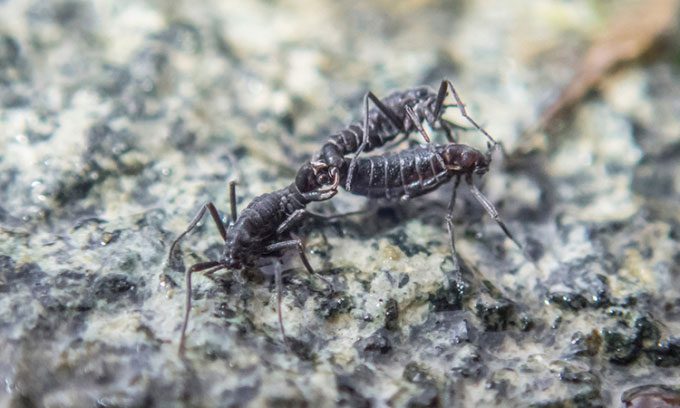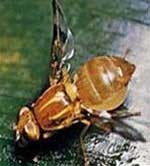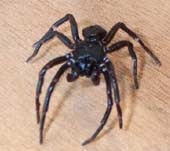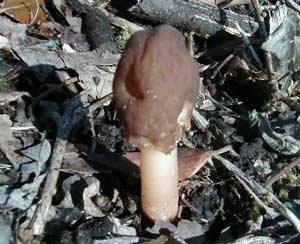Simulation scenarios in the study indicate that a 2°C increase in winter temperatures could reduce the survival rates of the Antarctic midge.
Antarctic midge, the only known native insect species in Antarctica, is being pushed to the brink of extinction due to climate warming, which could alter the food web of the continent, according to research published in the journal Functional Ecology on June 12.

Antarctic midge adapted to extreme living conditions. (Photo: Ben Philip)
The Antarctic midge is a flightless insect smaller than a pea. They have evolved to survive in extremely harsh conditions. According to the research team, including expert Jack Devlin from the University of Kentucky, USA, the warming winters are threatening their existence.
This species completes its life cycle in about two years, spending most of that time in the larval stage. In the new study, the team assessed the response of larvae to simulated winters lasting about six months under three temperature scenarios: warm (-1°C), normal (-3°C), and cold (-5°C). For each scenario, they placed the larvae in three distinct environmental types they typically inhabit, including decomposing organic matter, living moss, and Prasiola crispa algae.
During the simulated winter phases, the scientists measured survival rates, mobility, tissue damage, energy reserves, and molecular stress responses of the larvae. The results indicated that a 2°C warmer winter could decrease the survival rate of these insects while also reducing their energy reserves. This energy deficit could negatively impact their growth and reproduction later on.
If larvae burn more energy reserves during warmer winters, they could eventually face extinction on certain islands, according to entomologist Joshua Benoit from the University of Cincinnati. Antarctica has very few species that live exclusively on land, so the loss of the native midge could also alter the food web of the continent.
“To our knowledge, this is the first study to simulate a sufficiently long winter and identify physiological losses in different winter environments for Antarctic arthropods. The results suggest that continued warming winters in the Antarctic Peninsula could adversely affect those cold-adapted invertebrate species and related terrestrial communities,” the research team stated.




















































